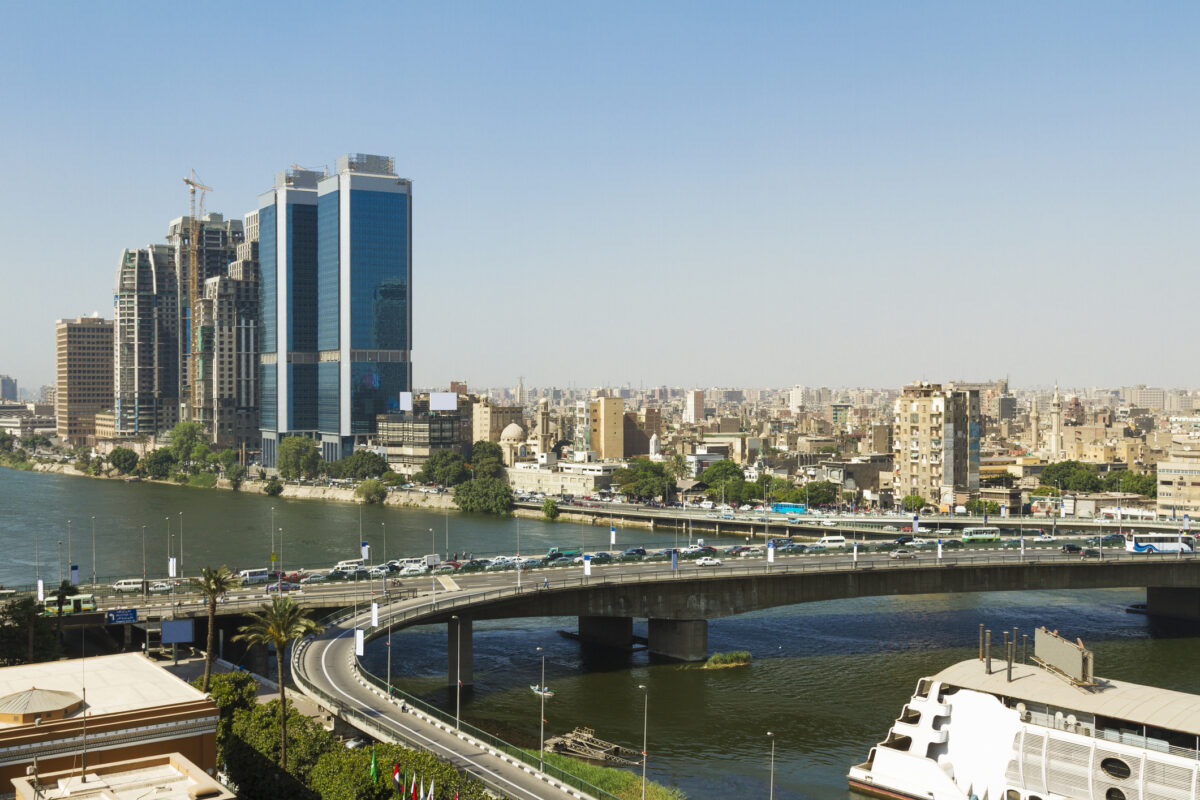
In-Depth Analysis 2020: Fintech Ecosystem Developments in Egypt
This has been evident through various activities occurring in the fintech space. The Fintech Times takes a look at some of the highlights that have occurred in this ecosystem so far.
Development in the Egyptian Fintech Ecosystem
While Egypt’s population is large, it is perhaps underutilising solutions that both fintech and the wider digital world could facilitate. This also stems to general banking, where an estimated that 67 percent of Egypt’s population is still unbanked. One of the biggest challenges is culture – as Egyptian culture has historically been more cash-based.

It was recently announced by Minister Mohamed Maait, that Egypt’s Ministry of Finance plans to replace five million current payment cards, used to disburse state employee dues, with free Meeza payment cards.
These will allow government employees to withdraw cash from cash machines and online vendors, pay any government dues and other point of sale (POS) activities. This highlights the wider digital transformation priority that has been highlighted by Egyptian President Abdel-Fattah El-Sisi – known as Digital Egypt.
Back in July, Egyptian MPs in Parliament approved a law aimed at regulating the performance of the Central Bank of Egypt (CBE) and the banking sector. The law stipulates that banks operating in Egypt should have a minimum capital of at least $310 million (EGP 5 billion) and representation offices should have capital of at least $9.41 million (EGP 150 million).
The new law also aims to catch up with the latest developments in the banking sector and operations and services such as e-payments, fintech businesses, and cryptocurrencies.
The Sovereign Fund of Egypt (TSFE) launched four sub-funds (one of which is fintech) that presents significant investment opportunities due to global pandemic of COVID 19.
In addition, much of the implementation from the government’s has clearly starting to be felt in a positive way as part of the country’s push towards digital, particularly with the CBE strategy, which is aligned with the national economic development strategy of Egypt – Sustainable Development Strategy (SDS): Egypt Vision 2030.
New fintech companies are still being created in the country despite the difficult year. For instance, Prime FinTech is a newly launched company from Prime Holding, which is a major investment bank in Egypt.
As a holding company, Prime FinTech aims to establish subsidiaries that provide a range of non-banking financing services, including consumer finance and leasing aimed at both businesses and individuals.
Mervat Erian takes over the helm at Prime FinTech as Chief Executive officer (CEO) and comments, “I am delighted to join Prime Holding and excited to lead the fintech operation.
Egypt’s potential for innovation is undeniable, and the need for financing solutions continues to be a priority for Egyptians regardless of their socio-economic segment. With a banked population of only 38% and a population exceeding 100 million, Egyptians are looking to better their lives, businesses, industries through solid growth.”
In terms of events, due to the pandemic, many still went ahead albeit virtually. One of the most recent was RiseUp From Home (RFH): Got Grit?, a digital event organised by RiseUp to reconnect the regional entrepreneurship ecosystem and help entrepreneurs become more resilient during these times.
Speakers that took part included: Rana El Kaliouby, Cofounder and CEO at Affectiva, Vezeeta’s CEO Amir Barsoum and Omar Gabr, Instabug’s CEO; as well as regional and global VCs and investors such as 500 Startups’ Hasan Haidar and Global Ventures’ Noor Sweid; and global experts and professionals such as Andreesen Horrowitz’s Ben Horrowitz and LinkedIn’s Allen Blue.
According to the founder of RiseUP, Abdelhameed Sharara, “RFH is digitizing activities that were majorly conducted offline, including networking, exposure, and exhibiting, in order to prepare startups regionally for unforeseen external shocks in the future.
The aim is to help startups and entrepreneurs mitigate the negative economic effects of the COVID-19 pandemic by enabling stakeholders to reconnect, obtain resources, become more resilient and learn how to become more gritty.”
One example of many exciting announcements that came from RFH was Banque Misr developing the infrastructure to launch its first digital bank, which is expected to replace the traditional model and accordingly is in talks with the Central Bank of Egypt (CBE).
In terms of an accelerator and other fintech programmes, Startupbootcamp FinTech Cairo will be open for applicants September 1st, as stated on its website.
A ‘first of its kind’ fintech programme that will be six-months long, the Cairo programme will support up to ten innovative early-stage FinTech startups in Egypt, with a targeted focus of financial inclusion.
Another accelerator programme, Falak Startups, made news by offering up to $63,000 in direct investment, support and perks for startups to help them survive when the CoVID-19 crisis started taking its toll in the global economy earlier in the year.
Flat6Labs, which is a regional accelerator hub with programmes and seed funds in Cairo, Jeddah (Saudi Arabi), Abu Dhabi (United Arab Emirates), Beirut (Lebanon), Tunis (Tunisia) and Bahrain, has some investors which include: the International Finance Corporation, MSME Development Agency, Egyptian American Enterprise Fund, and Egypt Ventures.
Despite the pandemic, Flat6Labs Cairo’s Spring 2020 cycle, which commenced on February 16th in 2020 and welcomed eight promising new teams, filtered from around 1000 applications, had their graduation in June.
Those eight graduates, across a wide range of startup sectors including fintech, were: 3atlana, Bosla, CreditGo, Inploy, Mycelium, Opio, Tayar and Wedel.

Egypt’s impressive successful funding rounds for entrepreneurs
A recent Magnitt H1 2020 Mena Venture Investment Report report that was released in July revealed that while the UAE continues to enjoy the top spot by receiving the largest share of total funding as a result of several later-stage investments, it was Egypt that was first in terms of the number of deals. Some of which have been counted in the report such as:
Digital payment provider Paymob, which was founded by Islam Shawky, Alain El Hajj and Mostafa El Menessy, raised $3.5 million USD in investment; this which was led by Global Ventures and the Dutch Entrepreneurial Development Bank FMO with a follow-on investment by A15.
Paymob will be using the proceeds to further expand its merchants’ network to meet the continuously rising demand, product development and establishing a larger regional footprint.
It commands over 85% of the market share of the transactions throughput in the Egyptian market, and serving merchants across five different markets.
El Gameya, a fintech mobile application founded in 2018 by Ahmed Mahmoud that helps users organise and manage micro-savings and credit, raised a six-figure investment from a pre-seed round led by AUC Angels. Other participants were Alex Angels and Cairo Angels.
ElGameya runs on the concept of money circles where people save and borrow collectively. App users also get exclusively discounted products on exclusive cash-out options; it was recently shortlisted as a finalist of the P2P Syndicate Finance Challenge.
E-commerce startup Fatura closed a seven-figure seed round that was led by fintech fund Disruptech, with participation from EFG EV and Cairo Angels.
Ahmed Anwar, the co-founder and chief operating officer (COO) said in a previous release, “Around 60 per cent of the current wholesale market in Egypt is through on-credit purchases. We will be the first player to unlock the opportunity of digitizing the lending cycle.”
Digital lending startup Shahry raised $650,000 in pre-seed funding from the investment arm of Egbank, a leading Egyptian bank. Founded in early 2019 by Sherif ElRakabawy & Mohamed Ewis, Shahry uses proprietary AI-based credit scoring engine, enabling users to apply for virtual credit through its mobile app that they can then use to purchase different products (without leaving Shahry’s app) from different online shopping platforms and stores.
Finally, MoneyFellows, which was founded in late 2016 by Ahmed Wadi, has raised $4 million in a Series A round from Paris-headquartered global VC Partech and Egypt’s Sawari Ventures, follow a previous investment of over $1 million in a Pre-Series A round from 500 Startups, Dubai Angel Investors, and Phoenician Fund.
MoneyFellows has digitised the concept of money circles (ROSCAs) which are commonly known as gam’eya in Egypt and other Arab countries, through its online platform.
Despite the challenges the country has faced in the past, the vibrant ecosystem in fintech is nothing short of remarkable. From Egyptian entrepreneurs leading in funding rounds to implementation work of the fintech strategy, Co-VID 19 or not, there remains a desire and need to go digital.











